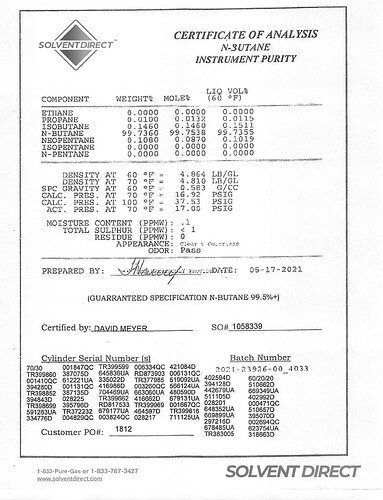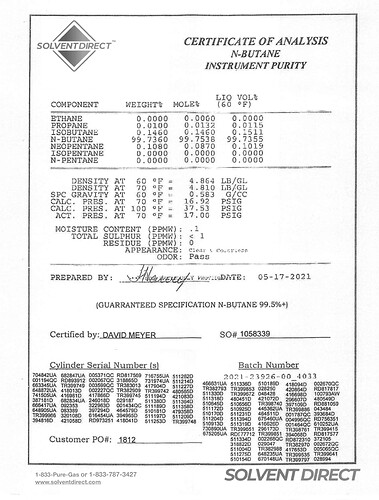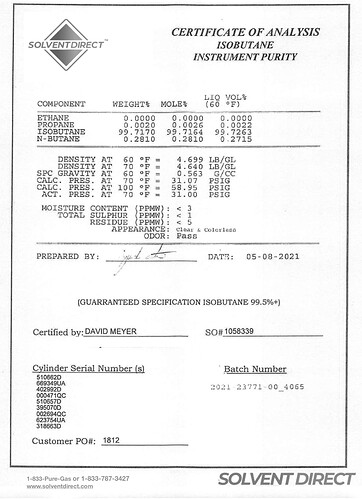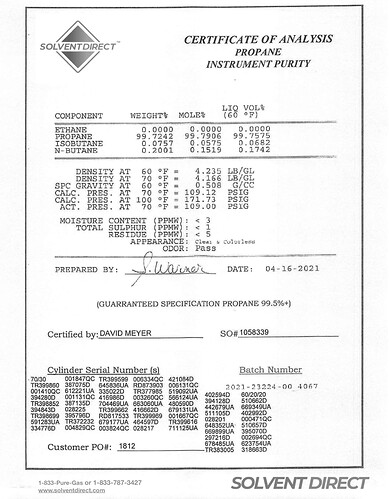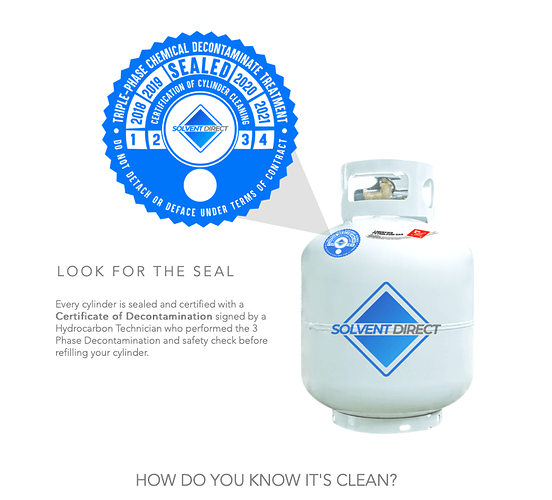These are great questions Killa. It takes about 12 weeks for us to get our cylinders sent out, cleaned, refilled and returned. This process is very time consuming, requires significant planning and forecasting and is an expensive process. This is why our product costs slightly more than the other guys topping cylinders out back without ever cleaning, decontaminating or having a specialist check for valve imperfections, threading compromise or other safety hazards.
Further, you may see older COA’s because we use the FIFO (first in, first out) method to make sure that we are turning cylinders as quickly as possible to prevent cylinder corrosion.
The industrial practice of topping off lp cylinders out back is much faster and cheaper, but it exposes your product to the coffee mug analogy. I don’t think we need to re-post the picture, but if a diner served you “clean” coffee in a dirty mug filled with petroleum sediments containing benzene… you get the point.
If you want to read more about our partnership with one of the oldest and most reputable cylinder re qualification companies in the country to adapt medical cylinder cleaning techniques to LP cylinders for extraction, hit our website, go to MORE > BLOG > EVOLUTION OF 3 PHASE CYLINDER DECONTAMINATION.
Keep an eye out for our content suite at Bizcon this year. We are going to be making some big announcements…
We don’t believe “topping” is a safe practice for extraction no matter how short industrial suppliers cut their dip tubes. Our customers save time and money distilling mystery oil and don’t have to expose their people, process, system and product to these dangerous accumulations. And we provide steel, full length, angle cut dit tubes so you can use every last drop. This allows our customers to focus on their highest and best use of time, not re-distilling gas that was compromised by a filthy cylinder and they get to use everything they pay for.
As for the COA definition you’re quoting above, our COA is pulled on the batch before it hits the bulk tank. This is how it is done in food and beverage grade ethanol supply because you’re right, but we are filling 1000’s of cylinders per month and it is not cost effective to test every delivery cylinder. We would be happy to test every delivery cylinder for a service fee like other distributors, but like in food and beverage grade alcohol supply if the bulk vessel is clean and the consumer vessel (the delivery cylinder) is clean, then we have established a clean chain of custody.
This is why a Certificate of Decontamination (COD) is very important to have with the COA. Without a way to verify the delivery vessel meets the purity standard, there is no way to verify the purity standard on the consumer level.
It’s great that we are airing out these unethical practices of topping off tanks repeatedly without ever running a decontamination process. If your supplier can’t show you what they are doing to maintain the purity standard, how do you know the standard is consistent with the source?
What happened to the other suppliers that were on here? Why did they all go so quiet?
